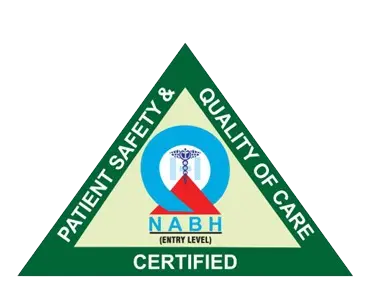The urinary system refers to the kidneys, ureters, bladder, and urethra. It manages the waste produced by the body and provides a means for evacuating that waste. Urologic problems include all diseases affecting the urinary system. They affect all ages, sexes, and persons. You should see your physician immediately if you experience any urologic symptoms. CritiCare Hospital boasts extended experience in urology treatment. Today, it is very fortunate to have the best-qualified urology doctors in Lucknow to ensure the provision of high-quality care to men and women, including those with reproductive system problems associated with men.
What Are Urology Symptoms?
The most common include:
- Painful urination
- Poor bladder control
- Blood in the urine
- Overactive bladder
- Enlarged prostate
- Hernia
- Male sexual issues
- Pain in the lower stomach, back, or groin
If you experience any of these, it is advisable to see a qualified urologist at CritiCare Hospital to know the cause and treatment.
Ways to Treat Common Male Urology Problems
The hospital team, with extensive experience, helps patients find advanced medical solutions for all urological problems affecting males where they:
- Patients can take antibiotics and anti-inflammatory drugs by mouth to deal with urogenital tract infections and inflammatory conditions.
- The therapeutic medicine Collagenase, together with others, provides injection-based treatment to minimize Peyronie’s disease scarring and inflammation.
- The category of minimally invasive procedures includes all interventions that would benefit patients with kidney stones or prostatic and other related medical issues.
- The laser therapy stands out as it treats kidney stones, ureteral stones and specific prostate conditions without harm to patients.
- Reconstructive Urology Surgery handles urinary incontinence together with serious injuries of kidney structures and the bladder and genital regions.
- Physical medicine and rehabilitation instructions will support patients in their recovery process together with achieving their best possible functioning ability after receiving urologic procedures.
Urology-associated disorders:
Urology-associated disorders stand as primary conditions that urologists need to address. Some of the most regular urological problems that need treatment include the following causes and solutions:
- Urinary Incontinence
Urinary incontinence affects tens of thousands of people around the planet. Diabetes and weak bladder muscles combined with pregnancy or spinal cord injuries will cause this condition. The ailment of urinary incontinence impairs normal life quality and produces painful feelings of embarrassment in many persons, but it rarely becomes deadly. People with this health condition can often control their symptoms by adjusting their lifestyles. The patient may require a surgical procedure for alternative treatment when other methods fail to produce results.
- Stress Incontinence
The leakage of urine occurs when performing activities that strain the pelvic muscles, like laughing and coughing, leading to weak pelvic floor muscles in cases of stress incontinence. The incidence of incontinence affects males and females, but doctors document more occurrences in females. Therapy targets strengthening exercises to strengthen pelvic floor and sphincter muscles while including medications and exists with surgical procedures including urethral thickening procedures and artificial urinary sphincter implantation.
- Overactive Bladder
An overactive bladder is defined by the frequent or urgent need to void, with little or no control. Most often, there is a neuropathological or transient UTI, but this is normal for aging. A physician at CritiCare Hospital or any other hospital would offer bladder training or medications to manage this condition, often requiring surgical treatment in severe cases.
- Urinary tract infections or UTIs
This is an extremely common urological problem, especially among women. The bacteria usually enter the urinary tract, and the urine suddenly begins to show symptoms: painful urination with multiple urges to urinate or very cloudy urine. Consult a doctor for antibiotics to treat UTIs but for recurrences and serious urological problems,.
- Kidney And Ureteral Stones
Clinical conditions in which hard deposits of minerals and salts are formed in the kidneys and move down into the ureters are known as kidney stones. Smaller stones can usually go out of the body without any medical intervention, but larger ones commonly need a particular kind of medical treatment. You will be glad to hear that Criticare Hospital has facilities with a wide range of kidney and ureter stone treatments, including minimal invasion and laser therapy to fragment larger stones.
- Urological Problems Specific to Females
Because of the comparatively shorter length of the urethra, women are prone to more urological problems. Apart from urinary tract infection, some other specific urological problems in women include pelvic organ prolapse and pelvic floor dysfunction. They may also show symptoms of incontinence, pelvic pain, and a general sense of bulge in the vagina.
- Dysfunction of pelvic floor
Pelvic floor muscles exist to support bladder, uterus and rectum functions in the body. Birth, as well as other contributing elements, might cause pelvic floor muscles to weaken. They could also become aggravated by these same factors. Urination-related problems become difficult to manage alongside pelvic pain, and urinary incontinence occurs due to this condition. Pelvic floor dysfunction stands as the medical term for this condition. The treatment includes pelvic floor exercises combined with physical therapy, together with orthoses when needed or possible surgical intervention.
- Pelvic Organ Prolapse
The pelvic floor muscles weaken after childbearing, which allows the bladder and uterus or rectum to slide out of their normal place. This condition produced both urinary discomfort and urinary incontinence, together with sensations of bulging or heaviness in the vaginal area. When pelvic organ descent reaches severe stages, doctors may need to perform surgical treatments combined with alternate therapies for the patients’ well-being.
- After Delivery Incontinence
Every delivery includes this problem; however, it occurs most commonly after vaginal delivery. Urine leakage occurs when pelvic floor muscles are weak, thus causing accidental urine passage during coughing, sneezing and performing physical activities. Patients require Kegels together with lifestyle modifications and surgery for their treatment.
Urological Emergencies
Indeed, they make rare but serious conditions deserving immediate attention in emergency medicine. Some of the urological emergencies may include:
- Priapism: Painful prolonged erection unrelated to sexual activity.
- Paraphimosis: A condition whereby the skin covering the glans of the penis is trapped behind the head.
- Testicular torsion: Twisted testicle cutting off blood supply and requiring emergency surgery. Fournier Gangrene: A very dangerous soft tissue infection affecting the genital area.
- Contact a medical professional immediately if you experience any of these.
Conclusion:
Urological problems are highly disruptive to the normal course of life and could lead to severe complications over time if left untreated. You should consult with an expert urologist if any of the signs above or other worrying urinary or reproductive health matters concern you. CritiCare Hospital is committed to nurturing and treating every urological aspect that has to do with its patients. Our team has brought together the best possible urologists so that together, you can work on a streamlined plan to help you rejuvenate your health and well-being.
For expert advice and treatment from the best urology specialists in Lucknow, contact CritiCare Hospital today for any urological concerns.



